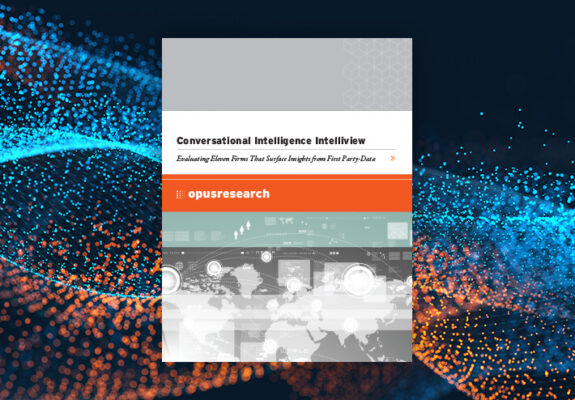How customers find and interact with your business is key to optimizing marketing and sales performance. When a consumer starts looking for a product or service, they’ll likely start their search online. Whether they use mobile or desktop, they typically visit a business’s website first. Then, they call or text for more information. And finally, go into a physical store to make the purchase. All along the way, your business can capture these customer touchpoints, interactions and conversations. You can use conversation intelligence to make better decisions. With journey intelligence — insights from touchpoints throughout the buyer’s journey — you can get a more complete understanding of the customer’s experience.
Journey intelligence is a holistic understanding of the touchpoints and experiences of a customer before making a purchase. Once you can outline the customer journey, you can identify which channels need to be analyzed for continuous optimization. Journey Intelligence allows you to go deeper than just capturing customer information like demographic or geographic data. It provides a more complete representation of the entire customer experience across multiple channels. Since journey intelligence is gleaned from interactions with ads, website, calls, texts or chats, a conversation intelligence platform is ideal for understanding insights.
Give Sales an Early Advantage
Customer journey data can give your sellers an early advantage. Knowing which campaign or offer attracted their attention or which web pages they visited is key to understanding customer intent. Knowing the context around a customer’s engagement with your business can give your seller a “head start” in connecting with the customer. With journey intelligence, your sellers learn who the prospects are, and how and why they contacted your business. Then, they can use this information to make their interactions more personal.
Create a Better Customer Experience
You can create a better experience for customers with journey intelligence. Knowing which channels your customers take on their purchase journey can help you identify any problem areas that might be causing a rift in customer communication. For example, a customer calls your business to learn about a service, but are held up by cumbersome call routing. With journey intelligence, you can identify the interactive voice response (IVR) menu as a friction point. With this knowledge, you can adjust the process so customers are connected to a live person sooner. Having these deeper insights across the entire customer journey allows businesses to make the purchase experience for customers as smooth and consistent as possible.
Journey intelligence also provides context for later touchpoints in the path to purchase. When a customer calls your business inquiring about a specific service, your CRM captures the data. When they re-engage to make an appointment or ask follow-up questions, the seller knows what the customer is interested in and can be prepared to help with next steps.
Understanding the steps a customer took before making – or not making — a purchase is key to tracking the performance of your marketing and sales efforts. Companies that don’t attribute their offline leads to the correct online campaigns are missing out on actionable data. These blind spots in the customer journey can result in wasted time and budget. With intelligence about the customer journey, your marketing team can increase performance and your sales team can provide a top notch customer experience that together can help you grow your business.
For a more complete understanding of the customer experience through journey intelligence from lead to close, contact us.




